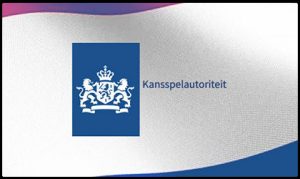In the Netherlands and the Kansspelautoriteit (KSA) regulator has reportedly announced that it expects to have licensed approximately 35 operators by the time the nation’s iGaming market goes live from the first day of October.
According to a report from the online news domain at iGamingBusiness.com, the state-run watchdog revealed that it is to begin accessing license applications from next month after the county’s Remote Gambling Act comes into force. The source explained that this piece of legislation was ratified in February of 2019 and is to permit approved operators to offer a range of iGaming entertainment to the around 17 million people in the Netherlands for the first time.
Confirmed commitment:
The KSA’s forecast was purportedly contained within its annual report for 2020 alongside a range of crucial obligations for any firms hoping to secure a Dutch iGaming license. This register reportedly also detailed the regulator’s powers with regards to stamping out illegal online gambling and reaffirmed the importance of rules that have been designed to prevent addictive behaviors and promote consumer protections.
Exacting expectations:
Most notably and the watchdog reportedly advised all potential iGaming licensees that they are to be obliged to check punters against the coming Centraal Register Uitsluiting Kansspelen (CRUKS) self-exclusion system and allow its own inspectors to remotely monitor systems via the provision of information to its CBD database. The source moreover divulged that this player protection tool is not yet operational following early teething troubles but has now been placed into the capable hands of Danish information technology consultancy Netcompany Group A/S following a tendering process.
Global pool:
The KSA reportedly disclosed that it anticipates initially receiving around 40 iGaming license applications from the first day of April with many of these being lodged by international operators. The regulator furthermore purportedly revealed that a portion of the taxes collected from these firms is to be used to establish the Addiction Prevention Fund so as to carry out research into effective treatments while providing potential problem gamblers with anonymous services and advice.
Duty details:
Additionally, the watchdog reportedly stated that the fees it collected in land-based gaming taxes for 2020 had risen by 12.3% year-on-year to approximately €8.2 million ($9.7 million) while the cash it earned from associated fees had dropped by 41.5% to around €644,000 ($763,360). It purportedly went on to assert that it had granted 43 slot licenses during the twelve-month period while denying nine with a further ten applications having been withdrawn.
Coronavirus calm:
Finally, the KSA stated that the Netherlands saw a drop in illegal iGaming activities last year largely as a result of the coronavirus-related cancellation or rescheduling of a raft of sporting competitions and tournaments such as the 2020 UEFA European Football Championship, the 2020 Summer Olympics and the 2020 Copa Libertadores.